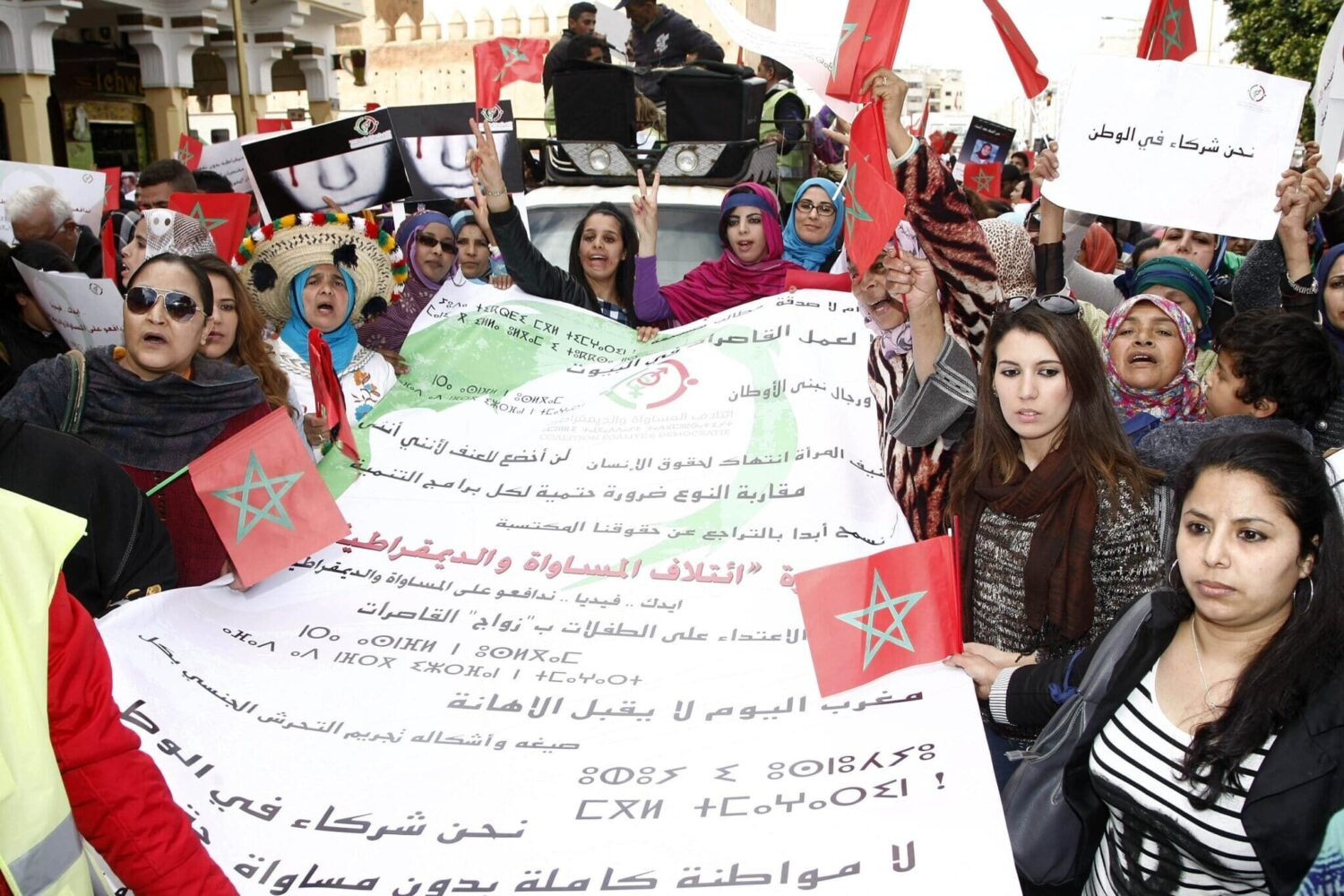
Human rights in Morocco, a constitutional monarchy, may be compared from two perspectives, an internal one and an external one.
In the first perspective, human rights in Morocco have come a long way since the “years of lead” under King Hassan II during the 1970s and 1980s, resulting in a heavy toll of murder, kidnapping, torture, and abuse—the worst breaches of human rights in postcolonial Morocco. The loosening of the state’s grip and a gradual democratic opening began in the 1990s, well before the “Arab Spring.” This opening culminated in the historic coming to power of the socialists, who had been heavily impacted by human-rights abuses in the preceding decades, and the accession of the new king in 1999.
In the 2000s, civil society was reinvigorated, and a proliferation of NGOs—human rights (e.g., the Association for Human Rights, AMDH), women’s rights, Amazigh (Berber) rights, Sahrawi rights, and Islamist rights—marked the beginning of the twenty-first century. The heated ideological debates between secularists and Islamists in the 1990s cooled. Several reforms were enacted, such as the 2004 Family Law and freedom of speech. A National Council on Human Rights (CNDH) was created and funded by the government, which continued to investigate claims of forced, involuntary disappearances. It was also charged with recommending assistance such as financial help, health care, employment, and vocational training, as well as the creation of community projects that would generate income. This dynamic civil society improved human rights and fostered greater trust between the people and the authorities.
The 2011 uprisings in the Middle East and North Africa region, however, took Morocco by surprise and greatly affected the status of human rights, which went from rapidly accelerating democratization to a gradual return to the earlier status quo. A new constitution was promulgated, and, in 2012, Islamists replaced the socialists in the government, but the initial euphoria subsided in disillusionment, with human-rights gains being counterbalanced by the return of frustration and mistrust between citizens and authorities.
The reality on the ground
In spite of the strong human-rights reforms provided for in the 2011 constitution, practices on the ground are far from implementing legislation, and many repressive laws await revision. Furthermore, various human-rights abuses have been committed by security forces, including the brutal dispersal of demonstrators by the police, the use of excessive force in quelling peaceful protests, and the abuse by police of migrants from sub-Saharan Africa. Freedom of assembly and speech are limited, freedom of conscience is still not clearly legalized, and the judiciary is still not independent. Authorities need to maintain more effective control over security forces and enforce respect for the rule of law.
Various reports show that pretrial detention exceeds the period allowed by the law and that prison conditions need to be improved.
Gender equality and parity are not yet implemented, and child labour, particularly in the informal sector, and human trafficking, corruption, and impunity still prevail, despite some headway having been made.
Numerous problems related to discrimination against women remain. A Muslim woman’s share of an inheritance, determined by Sharia (Islamic law), varies depending on circumstances but is smaller than a man’s. Under Islamic law, daughters receive half of what their brothers receive. If a woman is the only child, she receives half, and relatives receive the other half, while a sole male heir would receive the entire estate. The constitution does not specifically address inheritance law.
Seen in the broader context of a troubled Middle East and North Africa, Morocco is perhaps the only country where hopes for democracy and human rights are viable. The fact that reform in these domains started well before the uprisings in the region helps keeps these hopes alive, but poverty, soaring unemployment, and looming security concerns complicate the task.
On the ground and at the policy-making level, the state’s approach to human rights still focuses on security. Much more is needed on the human, social, and educational levels. Human rights need to be more visible in textbooks and manuals, as well as at home. The role of intellectuals in the process is more important than ever; they are the ones who possess a long-term vision that would help position human rights in their overall social context.
Perhaps the most urgent need is to implement the 2011 constitution. Although the latter opened two genuine human-rights-related opportunities—the recognition of gender equality and parity (Article 19) and the unprecedented recognition of Amazigh (Berber) as an official language (Article 5)—these two articles have still not been implemented.


